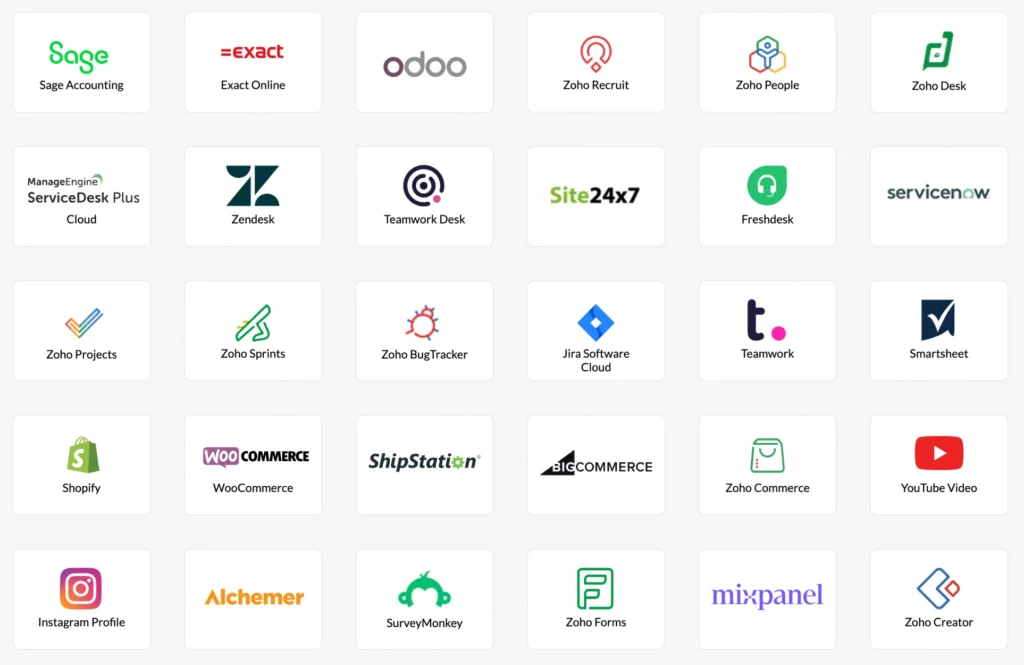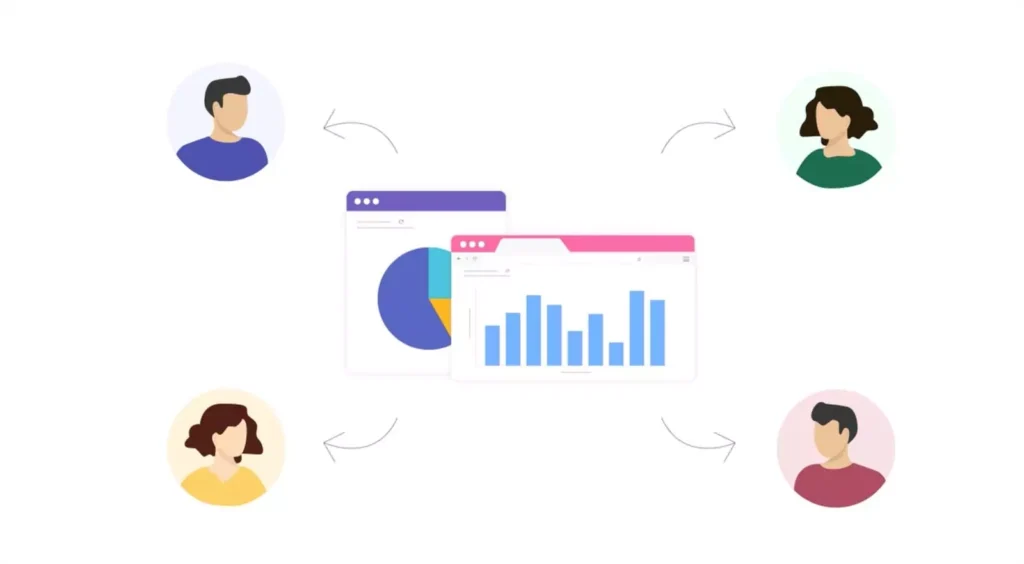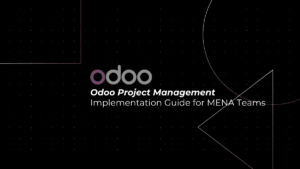In today’s fast-paced, data-driven business environment, accurate and timely financial reporting is more crucial than ever. Modern businesses require dynamic insights into their financial health to make informed decisions swiftly. Are you ready to explore how Zoho Analytics can revolutionize your financial reporting? Let’s dive in!
Table of Contents
ToggleIntroduction to Zoho Analytics
Zoho Analytics is a comprehensive business intelligence (BI) and analytics platform that empowers businesses to visualize their data and extract actionable insights. In the context of financial reporting, it isn’t just a tool—it’s a game changer. Imagine transforming complex data sets into clear, insightful visual reports and dashboards with just a few clicks. Sounds powerful, right?
The Importance of Data-Driven Financial Reporting
Data-driven financial reporting brings several key advantages:
- Enhanced Accuracy: Automating data collection and reporting with Zoho Analytics minimizes human errors, ensuring more accurate financial data. Have you ever considered how much time and stress this could save your team?
- Better Decision-Making: Real-time data processing allows businesses to make decisions based on the most current information, staying agile in a volatile market.
- Improved Transparency: With comprehensive dashboards and detailed reports, stakeholders gain a clearer understanding of the company’s financial status, fostering trust and informed decision-making.
Traditional financial reporting often relies heavily on manual processes that are not only time-consuming but also prone to errors.
Zoho Analytics alleviates these issues by providing a streamlined, automated approach to gathering and analyzing financial data. Say goodbye to the old ways and welcome a more efficient future.
Overview of Zoho Analytics and Its Relevance
Zoho Analytics is a powerful tool for anyone looking to enhance their financial reporting. Key features include:
- Data Visualization: Transform raw data into visually appealing reports and charts that make complex information easily understandable.
- Real-Time Reporting: Update financial reports in real-time as new data becomes available, ensuring that all decisions are based on the latest information.
- Customizable Dashboards: Tailor dashboards to reflect key financial metrics critical to your business operations, accessible at a glance. How would you like a dashboard that truly works for you?
Connecting Financial Data Sources
Zoho Analytics seamlessly integrates with a variety of financial data sources:

Direct Integration:
Zoho Books:
Zoho Analytics integrates seamlessly with Zoho Books, allowing for automatic synchronization of financial data such as sales, expenses, and profits. Imagine the time you’ll save with everything in one place.
CRM Systems:
It can connect with various CRM platforms to combine sales data with financial figures, providing a holistic view of customer interactions and their financial implications. Ever wondered about the true ROI of your customer relationships?
Bank Accounts:
By linking directly with bank accounts, Zoho Analytics can pull in transaction data, facilitating real-time tracking of cash flows and financial status. Wouldn’t it be amazing to have real-time financial clarity?
Other ERP or Accounting Software:
Integration extends to other ERP systems and accounting software like QuickBooks, Microsoft Dynamics, or SAP. How would you like to unify your financial data across platforms?
Data Consolidation:
Unified Data Repository:
Zoho Analytics consolidates data from various sources like CRM systems, ERP solutions, and bank accounts into one central repository, providing a complete view of a company’s financials.
Simplified Reporting and Analysis:
With centralized data, Zoho Analytics streamlines the creation of complex reports and in-depth analysis, allowing businesses to generate cross-functional insights on aspects such as sales performance and financial forecasting.
Customizable Import Options:
Zoho Analytics offers flexible import settings, letting users tailor data importation to fit their specific business needs, from the type of data to update frequency and detail level, enhancing report relevance and utility.
By leveraging these integration capabilities, Zoho Analytics not only simplifies the task of managing financial data from multiple sources but also enhances the accuracy, timeliness, and usefulness of financial reporting. Can you see the potential for your business?
Automating Financial Reports
Automation is a key benefit of using Zoho Analytics:
Streamlining Report Generation:
Automate the creation of essential financial documents like income statements and cash flow statements, reducing manual labor and focusing on analysis. What would you do with all that extra time?
Scheduled Reports:
Set up reports to be automatically generated and sent to stakeholders, ensuring everyone is always informed without manual intervention.
Creating Custom Financial Dashboards
Custom dashboards are invaluable for monitoring financial health:
Real-Time Monitoring:
Design dashboards that update in real-time with key financial indicators such as revenue, expenses, and profit margins. Wouldn’t you love to see your financial health in real-time?
Interactive Features:
Include interactive elements in dashboards, allowing users to drill down into more detailed views or adjust parameters to see different scenarios.
Advanced Financial Analytics with Zoho Analytics
Leverage advanced analytics to extend the capabilities of traditional financial reporting:
Trend Analysis and Forecasting:
Utilize past performance data to identify trends and predict future financial conditions, aiding in proactive decision-making.
Scenario Planning:
Conduct “what-if” analyses to understand the potential impacts of various financial decisions and market conditions.
Enhancing Collaboration with Financial Reporting
Zoho Analytics also enhances collaboration across departments:

Shared Insights:
How much smoother would your operations run with everyone on the same page? Easily share insights and reports across teams or with external stakeholders through secure, controlled access.
Role-Based Access:
Implement role-based access controls to ensure that sensitive financial data is protected while still promoting transparency and collaboration. Confidently share insights without compromising security.
Best Practices for Optimizing Financial Reporting
To maximize the benefits of Zoho Analytics:
Ensure Data Accuracy:
Regularly verify the accuracy of data inputs and integrations. After all, your insights are only as good as your data.
Engage Stakeholders:
Include key stakeholders in the design of financial reports to ensure the information meets the needs of all users. Wouldn’t it be great to have everyone on board from the start?
Align Reports with Business Goals:
Tailor reports to reflect strategic objectives, providing relevant insights that support broader business goals. How aligned are your reports with your business vision?
Challenges and Solutions
Implementing a new BI tool like Zoho Analytics can come with challenges:
Data Integration Issues:
Ensure data quality and compatibility. Utilize Zoho’s support and comprehensive documentation to manage integration smoothly. Don’t let minor hiccups derail your progress.
Adaptation Resistance:
Manage change by training staff and demonstrating the benefits and enhancements to their workflow and decision-making capabilities. Show them the value, and watch the resistance fade.
Zoho Analytics redefines financial reporting by offering streamlined, real-time, and data-driven insights that traditional methods cannot match. By adopting Zoho Analytics, businesses not only enhance their financial reporting efficiency but also gain deeper insights that can drive strategic business decisions.
Are you ready to transform your financial data into a strategic asset? In an increasingly competitive and data-centric world, Zoho Analytics provides the tools necessary to turn data into actionable insights. The future of financial reporting is here—are you on board?




